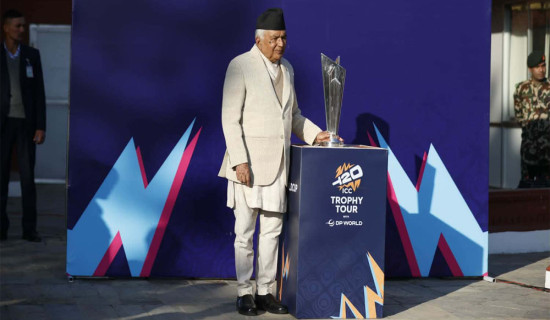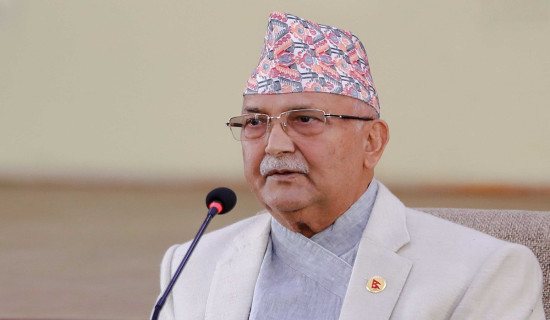- Monday, 5 January 2026
Italy: Land Of Snap Polls
Italian public was witness to the manner in which political parties stingingly rebuffed wide scale appeal for preventing snap polls. September 25 is the date for yet another snap poll in the country’s long history of too many government changes and too frequent snap polls. Parliament witnessed turmoil when three of the Mario Draghi government’s coalition partners decided to boycott a crucial session of parliament in July. One thing led to another. Dismayed by the unbearable wrangling among the constituents of his 17-month-old “national unity” government, Prime Minister Draghi offered to resign.
The nation was not prepared for another early general election, and wanted him to continue in office. President Sergio Mattarella pressed him to try to muster majority and hold on to the post to avoid the alternative of early elections. Not only smaller parties but also representatives from the cross section of Italian society — professional groups like doctors, engineers, experts, lawyers and other opinion leaders — appealed that he should not step down. The message could not have gone unregistered in the groups responsible for the peril posed to 17-month-old coalition. Draghi obliged the president and the mass appeal by giving it a try.
Draghi’s opponents were bent on new elections, ignoring the fact that as many as hundreds of mayors, and thousands of medical doctors as well as 200,000 signatures collected by ordinary citizens submitted in a petition for the former European Central Bank chief to stay.
Defiance
The Populist Five Star Movement, a key partner in the coalition, was strongly against Italy’s military help for Ukraine, and advocated that Russian oil was vital for the fledging Italian economy. Former Premier Silvio Berlusconi turned his back on the premier whose staunch supporter he was when Draghi was appointed to head the government in 2021. When he tested his “national unity” government’s position in the 315-member senate even as inflation and oil costs soared amid a spurt in COVID-19 pandemic infections. But keeping his team afloat proved an out and out unrealistic undertaking. Within 24 hours, he lost the parliamentary test. Fresh elections became the inevitable course.
Draghi managed to obtain a majority but, after one of the key coalition partners boycotted the voting, it was clear that the second effort to cobble together a government miserably failed. Differences over dealing with Russian invasion of Ukraine came into sharp focus between the pro-Russian oil import group and the side that wanted to slash the import drastically in the coalition. Since Russia invaded Ukraine, Draghi has pressed ahead with efforts to slash Italy’s dependence on Russian gas.
Italy holds the European record in frequent changes in governments in the post-World War II decades. Some five dozen governments have come and gone, thanks to the voters’ prone to creating fractured parliament and thus compelling the formation of coalition cabinets. Hard- headed cabinet constituents prefer snap polls to adjustments they find unbearable.
Clearly, the culture of reasonable compromise is missing most of the time and hence the parade of governments that came and exited with frustrating frequency over the decades. Italy’s track record shows governments falling apart almost annually, as indicated by the fact that the post-World War II years in 1945, Italy’s track record shows the installation and collapse of no less than 69 governments, which averages for a government a term of 1.11 years. This has tossed up as many as 29 prime ministers since 1946 to date — for all practical purposes so far, an exclusive male preserve. Hence, the scandal-ridden billionaire press tycoon Silvio Berlusconi has the distinction of being the only prime minister to complete five-year tenure. At 82, the irrepressible Berlusconi still has sight on top positions.
Italy’s adoption of a full-fledged proportional voting system gave considerable leverage to smaller parties, introducing coalition governments more as a norm than an exception. In the new millennium, the electoral system was changed a little. Two-thirds of the parliament’s seats were allocated on the basis of proportional representation. The remaining one-third of the seats were filled through direct elections under first-past-the-post system. The results, however, continued to create hung parliaments. Fringe parties benefitted to the extent of creating constant crisis in the government of the day.
Premature move
The Five Star Movement had followed recent opinion polls suggesting that it, together with other conservative allies, could secure majority in the next polls. It wanted to advance elections to take whatever advantage the surveys indicated. Its haste for fresh elections can be gauged by the fact that general elections were due by early 2023 in any case. The question is whether there will be a backlash that deprived the Five Star-grouped allies. For the opinion polls, even if they were to prove accurate, were conducted when the surge of support for Draghi as prime minister did not come to the surface. The support was public confidence in the economist prime minister to steer Italy out of the hardships inflicted by the effects of the COVID-19 pandemic.
Political crises are not new to Italians. When parties do not hesitate to push for their immediate agendas by any means, stable governments become a rarity. If Italy’s history of fractured parliaments and government collapse is any indication, the country is in for one more coalition combination in the seat if power. Although the country’s economy is an advanced one, it could have done better if a stable government were in place, and backroom bargaining between ruling constituents not become any dubious dealing.
Power is neutral. How it is wielded — used, abused and misused — creates the setting. There are, however, limits to craving power. Most people fall in line to submit to conditions contrary to their declared philosophy simply to prolong their stay at the pedestal. At times, leaders tell enough is enough as their detractors and opponents try overstretching things in creating humiliating situations. Ultimately, the test is in how voters react and give their verdict. Italy is set for yet another coalition cabinet soon.
(Professor Kharel specialises in political communication.)











-original-thumb.jpg)




-original-thumb.jpg)